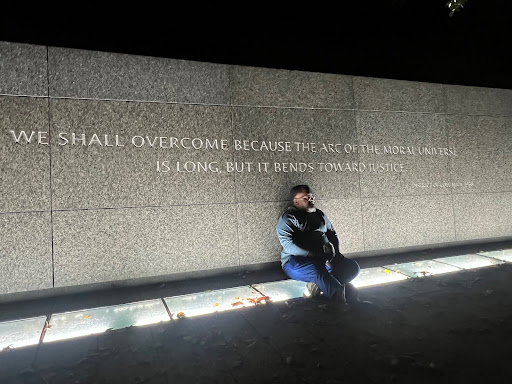Editor’s note: This article was written by Denver innovation school leaders Leah Schultz-Bartlett and Frank Coyne. Schultz-Bartlett is a Denver resident, DPS graduate, DPS Innovation parent and proud Principal of Beach Court Elementary School. Coyne is a Denver resident, DPS Innovation parent and proud Lead Partner of Denver Green School Southeast.
It’s hard to imagine that after two years of enduring the endless challenges of this pandemic we as school leaders find ourselves fighting to defend our school models.
Together we have served in Denver Public Schools as teachers and leaders for a combined 40 years. Our two schools were designed as innovation schools to meet the unique needs of our diverse school communities and by all accountability measures, our schools are meeting or exceeding the standards put forth regarding academic performance and teacher satisfaction.
Yet, in spite of proven success as a result of innovation, the DPS Board of Education continues to create an environment where students and families in Denver find themselves at the whim of an “Executive Limitation (EL)” to know if our innovative school models will forever be changed.
The EL is being presented as a policy to protect teacher rights. In the best-case scenario, this EL is about using the same tactics overplayed by so many previous administrations that have systematically ignored process and community as they dictate what we need. In the worst-case scenario, this EL is a wolf in sheep’s clothing that seeks to establish a loophole approach to attacking innovation as a model.
DPS currently faces huge challenges. We sadly have among the highest rates in the country for teen suicide. We are staring down the face of a pending teacher shortage and yet we are wasting time talking about undoing the innovation plans for 24,000 DPS students and one quarter of DPS families.
This EL is not only a distraction from what we should be working on, but does little to address any perceived infringement on teacher rights.
The current attempt by the board to limit the strategic plans of innovation schools is built on a fundamentally flawed argument because it assumes that the innovation schools are the problem. Limiting the flexibility of innovation models will not change the fact that Colorado ranks near the bottom among the l 50 states for per pupil funding.
Limiting educators’ ability to make decisions at the school level will not lead to more teachers joining the profession, it will lead to an exodus, and return us to a one size fits all model that doesn’t work for our schools. Innovation schools utilize waivers from DPS or state policy as tools to help us achieve our strategic vision for our schools.
The purpose of innovation is not to undo teachers rights, instead it’s a collective agreement from our entire staff and community that is passed with at least 60% approval; and all the waivers work together. It’s not a line by line execution, it’s a strategic plan.
These plans are working for over 50 DPS schools to deliver unique, high-quality programming for our students and families. Our teachers, many of whom are part of the union, love working at our schools. They wouldn’t have it any other way. And yet their voices are being silenced because of a binary “us vs. them” argument.
Here is some data worth sharing: Teachers at innovation schools are retained at the same level as at district-managed schools and report higher levels of satisfaction. Instead of trying to undo innovation, come visit our schools and learn from our approach.
We are learning organizations after all and we should be learning from each other.e would much rather work together to share innovative practices than spend endless hours defending our models.
In closing, we are left asking ourselves this question: What is the problem that we are trying to solve with this EL? Saying it’s a teachers rights problem and laying this at the feet of innovation schools is misguided at best and disingenuous at worst.
If this was about teachers’ rights, wouldn’t the board reopen our renewal processes, a process it has paused? During this process, wouldn’t board members express their desire to see teacher-friendly innovation plans as is their right? If this was about teachers’ rights, why not let those same teachers determine the program that will work for their students?
Ultimately, this is not about waivers, or teacher rights. It’s about a political win for the board members who introduced the EL without partnership nor community input. Sadly, in that world view, there has to be a loser, and right now, if this EL passes, the loser will be our students.
To our board and superintendent, we ask that you dig deep. We ask that you believe, not doubt. Create, not destroy. Have the courage to be the leaders who can bring the whole district together so we can learn from each other.
Our students and families deserve more.




